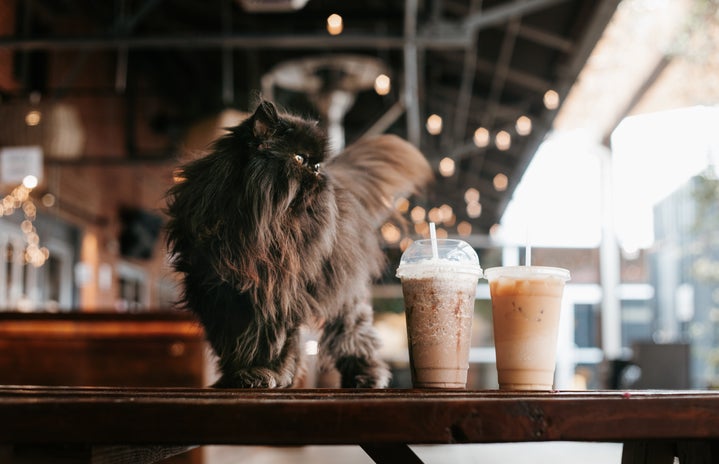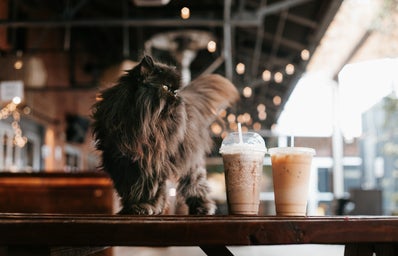Kuuchan is one of my three cats. When my grandmother first saw Kuuchan, a black-furred, orange-eyed kitten, she said, “This cat is fortunate!” Her remark surprised me because, as a child who celebrates Halloween, I believed black cats were associated with bad luck. With this article, I would like to look into the causes of a black cat’s contradictory ideas and express my perspective.
The Misfortune and The fortune
Negative Perception of Black Cats
- The Church and Cats.
The author of Black Cats Tell, Layla Morgan Wilde, explains that a 1233 official church document issued by Pope Gregory IX states: “black cats were declared an incarnation of Satan.” Elizabeth Yuko on History.com writes that the church had the intention of “squash[ing] the growing cult of Luciferians in Germany,” which had “quickly spread across Europe” (Yuko, 2021).
- The Witch and Cats.
Hecate, a Greek mythology goddess, was often “associated with witchcraft, magic, the Moon, doorways, and creatures of the night like hell-hounds and ghosts” (Cartwright, 2017). She was “described as having a cat as both a pet and a familiar” (Yuko, 2021).Thus, beginning with Pope Gregory IX and then Hecate, people began to believe that black cats carry mystical darkness and misfortune.
- The Plague and Cats.
Infected fleas carried the Bubonic Plague, commonly known as the Black Death, throughout Europe in the thirteenth century (World Health Organization, 2022). People seeking an explanation blamed the “mysterious nature of the black cat” (National Institutes of Health, 2018) and projected hatred upon them.
Positive Perception of Black Cats
- The Emperor and the Cat.
The oldest record in Japan regarding domesticated black cats is marked in 宇多天皇; Emperor Uda’s『寛平御記 』; Kanpyō Gyoki (The year 1313), where he expresses his love for his black cat (平松, 2021).
- The Author and the Cat.
The famous novel 夏目漱石 (Soseki Natsume) ’s 『吾輩は猫である』; I Am a Cat (The year 1906) is written from a perspective of a black cat (縁起物に関わる情報サイト「縁起物百科事典」, 2020).
- The Women and the Cat.
Along with black cats in Japan being seen as good luck, they are also “viewed as particularly important to single women, as having a black cat is believed to lure in many fine suitors” (Erbland, 2013). Possibly because of their ability to blend into the darkness and hunt more easily than cats of other colors, black cats have a choice of prey and can differentiate between good and evil men.
So which perspective is the most acceptable?
The symbolism of black cats impacts people in various ways. However, it is clear that we humans are imposing an image on our furry companions, and when it starts to limit us from seeing their true selves, it is unethical for us to do so. My Kuuchan is friendly and loyal to our family. For example, he is protective of his sister Petite when she and their brother Panda are fighting because she is physically the smallest of the siblings. I try not to view Kuuchan as either unlucky or fortunate and try to see that he is a fellow soul who lives in the world with his own rules and beliefs. So while aiming to make sense of an animal, an environment, or a person, we must consider the focus’s self and well-being.


